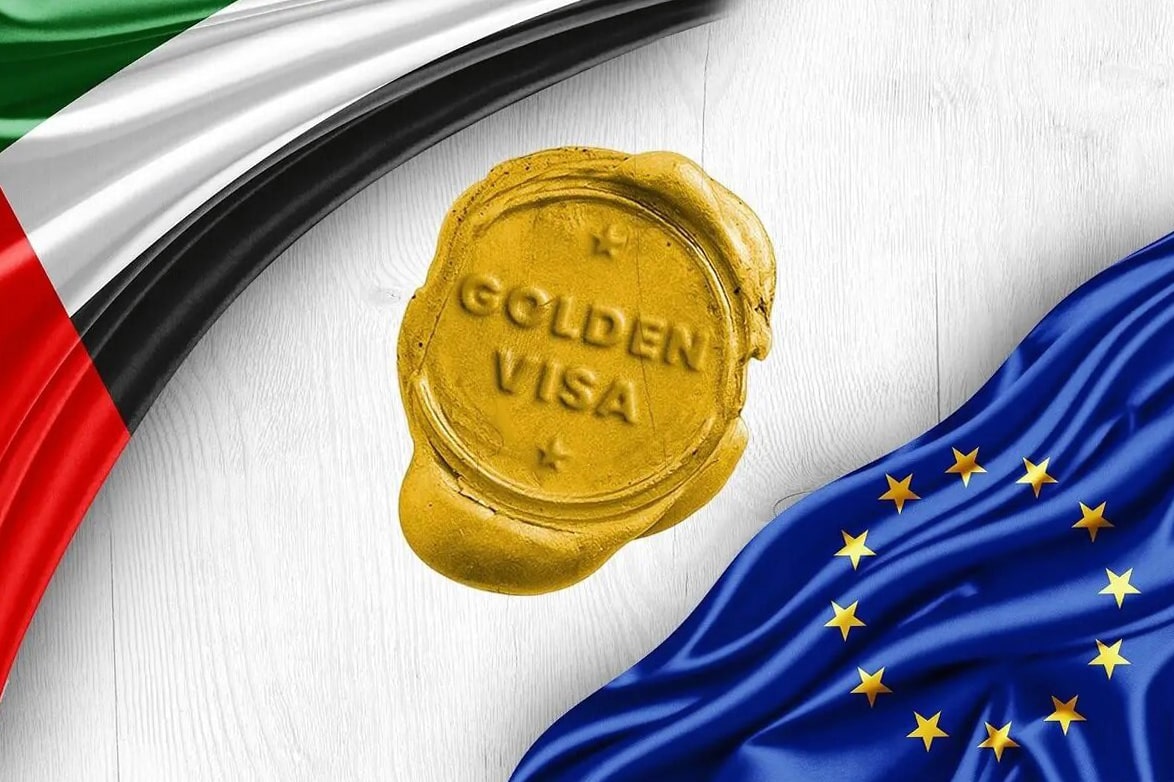UAE Golden Visa: How Does It Compare to Other Countries Residency Programs

In the rapidly globalizing world of the 21st century, the concept of residency and citizenship is no longer bound strictly by birthright or lengthy traditional immigration processes. The Golden Visa programs – an innovative bridge connecting discerning investors with nations eager to welcome them. These programs offer residency, and in some cases, a pathway to citizenship, to individuals willing to make significant financial investments in the host country. It’s a win-win proposition: countries receive much-needed capital infusion, and investors acquire enhanced global mobility, business opportunities, and a potential new home.
Golden Visa programs have seen a surge across numerous countries, from the picturesque coastlines of Portugal to the bustling metropolis of Malaysia. Each nation tweaks its program to offer unique benefits and cater to the specific desires of potential investors. However, amidst this global trend, one country’s Golden Visa program has captured a significant share of the spotlight: The United Arab Emirates (UAE).
While the idea of Golden Visas wasn’t new, the UAE’s interpretation of it certainly was. The country, already renowned for its tax benefits and investor-friendly environment, leveraged its Golden Visa as an invitation to be part of its growth story. The results? An overwhelming response from the global community, leading to the program’s rapidly growing popularity. From tech magnates to renowned scientists, from budding entrepreneurs to established investors, many have found the allure of the UAE’s Golden Visa hard to resist.
In the chapters that follow, we’ll delve deeper into a comparison of the UAE Golden visa with the world’s best Golden visa programs.
Overview of the UAE Golden Visa
The UAE Golden Visa was introduced in 2019, a significant milestone in the nation’s immigration policy. Prior to its launch, the UAE, much like its Gulf neighbours, primarily offered renewable residence visas linked to employment or property ownership. However, with an eye on the future and recognizing the immense potential of attracting global talent and investment, the UAE government decided to pioneer a change. The Golden Visa was launched to provide a longer-term residency solution, independent of traditional employment constraints, thereby ensuring a steady influx of talent and capital.
The UAE’s Golden Visa program offers various categories to cater to a broad audience:
- Investors: Individuals willing to invest in property, businesses, or deposit a significant sum in a UAE-based bank can apply for Golden Visa under this category. The financial threshold varies, but the underlying theme is a substantial commitment to the nation’s economy.
- Entrepreneurs: Those with a successful track record of business ventures and are willing to establish or expand their business within the UAE are targeted in this category. The nation understands the ripple effect a successful business can create, leading to job creation, increased economic activity, and technological advancements.
- Specialized Talents: The UAE highly values intellectual contributions. Thus, researchers in science and knowledge fields, inventors, cultural artists, and specialists in educational fields of priority for the UAE can get Golden Visa under this category. Doctors and scientists, for instance, contribute to the UAE’s vision of becoming a hub for medical tourism and research.
- Students: Outstanding students, showcasing promise and potential, can also secure a Golden Visa, emphasizing the UAE’s commitment to nurturing future generations.
Unlike many countries where such visas often span a year or two, the UAE offers a more extended embrace:
5-year Residency: Golden Visa application is available to entrepreneurs, investors in specific fields, and specialized talents, among others. This extended duration allows individuals ample time to embed themselves into the fabric of the UAE, contribute to its growth, and reap the rewards.
10-year Residency: Primarily for public investors, individuals with specialized skills, and scientists and researchers of significant value. A decade-long commitment signifies the nation’s faith in the holder’s potential contribution and provides a long-term horizon for sustained collaboration.
Key Advantages of the UAE Golden Visa
Duration of Residency
The longevity of a residency program, while often overlooked, is a fundamental aspect of a Golden Visa. The duration often signifies the nation’s commitment to the visa holder and provides a tangible timeline for planning long-term endeavors, be it business expansions or family relocations.
- UAE’s Commitment: Offering both 5 and 10-year residency options, the UAE demonstrates a clear intention to foster lasting relationships with visa holders. This extended period grants individuals the freedom to embed themselves into the fabric of the nation, formulating and executing long-term business and personal plans.
- Portugal: One of the most popular Golden Visa programs globally, Portuguese residency by investment scheme initially provides a 2-year residence permit. Although it can be renewed for two subsequent periods of 2 years each, the initial duration pales in comparison to the UAE’s offer. Furthermore, after five years, Golden Visa holders in Portugal can apply for permanent residency or citizenship, but this involves further stringent criteria and checks.
Recently, this Golden Visa program has gone through several important changes. One of them is the new law, prohibiting the residence-by-real-estate-investment option. There are still other ways of receiving this visa, though, like incorporating a company or investing in public or private scientific research institutions. - Greece: While Greece offers a relatively affordable Golden Visa program, the initial residence permit is valid for just five years. While it’s renewable, it requires maintaining the original investment, making the UAE’s 10-year option seem more generous and stable.
- Spain: Spain’s Golden Visa provides an initial residency of 2 years, which can be renewed for 5 years thereafter. However, this requires the investor to maintain their original investment and proves a certain level of integration into Spanish society. Compared to the UAE, this involves a more layered and possibly uncertain process for extended residency.
- Malta: Malta’s residency program does offer long durations. Still, it has a slightly different structure, with the initial visa being valid for a year, which then can lead to a more long-term status. It doesn’t quite match the straightforward 5 or 10-year proposition of the UAE.
When viewed in juxtaposition with other popular Golden Visa programs, the UAE’s 5 and 10-year residency options stand out for their longevity and the clear message of commitment they send to prospective investors and residents. This long-term approach not only boosts the confidence of the visa holders but also underscores the UAE’s position as a nation that values and seeks sustained, meaningful collaborations.
No Mandatory Residency Requirements
One of the less touted, yet immensely valuable features of a Golden Visa program is the flexibility it provides regarding physical presence. The demands of a globalized world often require individuals to move across borders frequently. In this context, stringent residency requirements can prove to be a limitation. Here’s where the UAE’s Golden Visa distinguishes itself:
- UAE’s Flexibility: The UAE Golden Visa does not impose strict requirements on the duration of stay. In other words, visa holders can live outside the UAE for extended periods without the risk of their visa being revoked. This allows global entrepreneurs, investors, and professionals to manage their international commitments without the pressure to maintain prolonged physical presence in the UAE.
- Portugal: Portugal’s Golden Visa, while popular, comes with certain stipulations. During the first five years, holders are required to spend a minimum of 7 days in Portugal in the first year and at least 14 days in each subsequent 2-year period. While not overly stringent, it’s still a requirement that necessitates planning.
- Greece: For Greece’s Golden Visa, there’s no mandatory minimum stay each year, which is similar to the UAE’s approach. However, the visa holder’s absence for seven consecutive years can lead to residency termination, a condition the UAE doesn’t impose.
- Spain: Spain’s Golden Visa mandates that the visa holder not be absent from the country for more than six consecutive months to maintain their residency status. This could be challenging for individuals with businesses and commitments in different continents.
- Latvia: Latvia’s residency-by-investment program requires holders to visit the country once a year. Though it’s a single visit, it’s still a commitment that has to be kept to maintain the visa.
When compared to the conditions set by other nations, the UAE offers a distinctive advantage, enabling visa holders to lead truly international lives without the tether of stringent residency mandates.
Tax Benefits
Taxation – often a pivotal factor influencing investment and residency decisions. Golden Visa programs across the globe vary not only in terms of residency benefits but also in how they treat tax liabilities. Here’s how the UAE’s tax benefits stack up against other countries:
- UAE’s Tax-Free Environment: The UAE is renowned for its tax-friendly stance. The country imposes no personal income tax, which means all your earnings, whether from employment or investments, remain with you. Furthermore, the corporate tax regime is equally attractive. With a few exceptions related to foreign banks and oil companies, businesses don’t incur corporate income tax until their profit exceeds 375K AED. After that, the corporate tax is capped at 9%. This tax-free environment is undoubtedly one of the most attractive features of setting up residence and business in the UAE.
- Portugal: Portugal’s Golden Visa is much lauded, but when it comes to taxation, the scenario is different from the UAE. Portugal imposes a personal income tax, which can range from 14.5% to 48% based on the taxable income. However, there’s a regime for non-habitual residents that can offer reduced tax rates on certain foreign-sourced incomes for the first ten years.
- Greece: While Greece offers an attractive Golden Visa program, its tax structure is worth noting. Personal income tax rates range from 22% to 44%, depending on the income level. Additionally, corporate tax in Greece stands at 24%.
- Spain: Spain’s personal income tax rates can go up to 47% for higher income brackets. Moreover, the corporate tax rate is generally set at 25%. Golden Visa holders planning to generate substantial income or operate businesses in Spain need to factor in these rates.
- Malta: Malta provides a unique tax system. While it has a progressive personal income tax rate that can reach up to 35%, it offers various tax incentives and refunds, especially for corporations, effectively reducing the net corporate tax rate to around 5%. However, this still represents a distinct tax liability compared to the UAE’s zero-tax environment.
Taxation plays a critical role in the overall yield of investments and the net income retained. The UAE’s commitment to a tax-free environment provides an unparalleled advantage to Golden Visa holders. While many countries offer attractive residency programs, few can match the tax incentives of the UAE, ensuring that residents retain a larger portion of their earnings and enjoy the full benefits of their investments.
Considerations Before Applying
Securing a Golden Visa is undeniably an attractive proposition, but potential applicants must be fully aware of the financial commitments involved. Let’s dive deep into the cost implications of the UAE Golden Visa and see how they stack up against other countries.
Cost Implications
- UAE’s Investment Requirements: Investment Options: The UAE offers a range of investment options for the Golden Visa. Investors can opt to invest AED 10 million in a public investment fund or as a direct investment in an established company. Entrepreneurs require an existing project with a minimum capital of AED 500,000. There are other visa categories based on property investments worth 2 million AED and specialized talents visa.
Associated Cost of Golden Visa: Beyond the primary investment, there are government fees, processing fees, and potentially legal consultancy fees, which can vary based on the specifics of the investment. - Portugal: The Golden Visa Investment program in Portugal offers multiple routes. A capital transfer of €1 million, or science projects are some popular choices. Additionally, there are associated legal and processing fees, which can add a few thousand euros to the total cost.
- Greece: Greece’s Golden Visa for investors is primarily real estate driven. A minimum real estate investment of €250,000 is needed. The lower investment threshold, combined with the relatively affordable real estate prices in Greece, makes it one of the more cost-effective options in Europe. However, there are also additional property taxes and notary fees to consider.
- Spain: Spain’s Property Golden Visa mandates a real estate investment of at least €500,000. Alternatively, applicants can choose a €1 million capital transfer or a €2 million government bond purchase. Similar to other countries, Spain has added costs in the form of taxes, notary fees, and processing charges.
- Malta: Malta’s residency-by-investment program is multifaceted in terms of costs. It involves a combination of a property purchase or lease, a government contribution, and an investment in government bonds or shares. The total commitment can exceed €1 million, making it one of the more expensive options in Europe.
In conclusion, while the UAE’s Golden Visa can represent a significant financial commitment, its strategic advantages, coupled with the potential returns on investment, make it a worthy consideration. As with all Golden Visa programs, it’s crucial for potential applicants to analyze the complete financial landscape, factoring in both the direct and associated costs, before making a decision.
Renewal Criteria
The long-term benefits of a Golden Visa are inherently tied to the ease and clarity of its renewal process. It’s pivotal for investors to know upfront about the sustainability of their visa status. Let’s delve into the renewal criteria for the UAE’s Golden Visa and juxtapose it with the procedures of other nations.
- UAE’s Renewal Requirements: Duration and Renewal: The UAE Golden Visa, depending on the category, can be valid for 5 or 10 years, both of which are renewable. The primary condition for renewal is to maintain the investment for which the visa was granted. If the investment is liquidated or falls below the required threshold, renewal might be jeopardized.
Absence Period: A unique feature of the UAE’s Golden Visa is that it does not impose strict residency requirements. Visa holders can stay out of the country for more than six consecutive months without jeopardizing the visa’s validity. - Portugal: Portugal’s Golden Visa is initially valid for one year and then can be renewed for subsequent two-year periods. To qualify for renewal, applicants must spend a minimum of seven days in Portugal during the first year and 14 days in the subsequent two-year periods. The primary investment must remain in place for the visa’s validity.
- Greece: The Greek Golden Visa is granted for five years and is renewable as long as the property investment, which is the common route for application, remains under the ownership of the visa holder. The country does not impose a minimum residency requirement for renewal, similar to the UAE.
- Spain: Spain’s Golden Visa has an initial validity of two years, extendable to five years and later to long-term residency. Renewal requires maintaining the initial investment and spending at least 183 days in Spain annually, which makes it stricter than the UAE’s terms.
- Malta: Malta’s residency visa requires a genuine link to the country, often translated as a physical presence, to be renewed. The exact terms can vary, but the initial visa validity is for a year, with the potential for indefinite renewals as long as conditions are met, including maintaining the initial investment.
In summary, the UAE’s renewal criteria for its Golden Visa stand out for its flexibility, especially the generous absence period. While each country has its distinct renewal processes, the ease of maintaining long-term residency in the UAE, without stringent stay requirements, sets it apart from many other nations. It’s crucial for potential investors to weigh these criteria against their long-term plans when considering a Golden Visa program.
The allure of the Golden Visa programs globally is evident. Yet, the UAE’s unique blend of strategic location, investor-friendly climate, and flexible residency conditions make its Golden Visa stand tall among its counterparts. With a plethora of advantages, ranging from tax benefits to world-class infrastructure, the UAE continues to magnetize global investors and high-skilled talents.
For those interested in leveraging the numerous advantages of the UAE’s property market, securing the Golden Visa based on property investment can be a game-changer. It’s not just about securing residency but also about opening doors to a world of opportunities in one of the most dynamic countries globally.
Are you contemplating the UAE Golden Visa property investment? Don’t navigate these waters alone. Contact The Visa Services today for expert guidance and let us simplify the process for you. Your golden gateway to the UAE awaits!
FAQ:
[sp_faq category=”194″]



